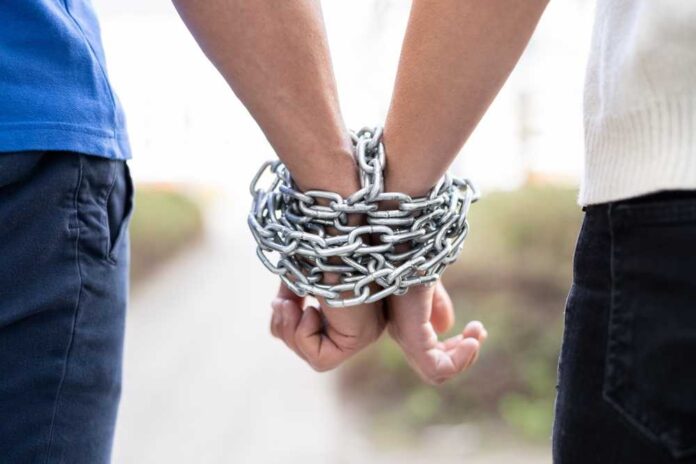
Codependency might seem at first like a caring, supportive relationship pairing. The two people are dependent on each other—they need each other.
But in a codependent relationship, how this dependency and neediness manifests itself is one-sided, unhealthy, and damaging to everyone involved.
One person “needs” the other, and they’ll go to any lengths, even if that means compromising their values, morals, and self-respect. And the other person “needs” to be needed, to the point where they both enable each other’s bad behavior and codependent habits.
Always Caretaking Without Self-Care
In a codependent relationship, one person is always giving while the other is always taking. The “giver” might cancel plans with friends to stay home and take care of their partner, or they might put their partner’s work demands ahead of their own. Meanwhile, the “taker” in the relationship never seems to do anything for the other person, and they’re always the ones being taken care of.
This is often seen in relationships where one person is a “caretaker,” and the other is an addict or has some other kind of problem. The caretaker becomes so focused on taking care of the other person that they forget to take care of themselves.
Fear or Anxiety About Being Alone or Abandoned
The “giver” in a codependent relationship may have trouble being apart from their partner. They may constantly check in with the other person, making sure they are ok and asking if they need anything.
The “taker” has also become dependent on the other person to take care of their needs and enable their bad behavior, and they’re afraid of what will happen if that is taken away.
Losing Your Identity in the Relationship
Both partners can maintain their sense of self and identity in a healthy relationship. They have their hobbies, interests, and friends.
But in a codependent relationship, the “giver” may lose sight of their needs and identity. Their whole world revolves around the other person, to the point where they are no longer sure who they are without them.
One-Sided Communication
In a healthy relationship, communication is open and honest. Both partners feel safe sharing their thoughts and feelings, knowing they will be heard and respected.
But with codependency, communication is often one-sided. The “taker” tends to make everything about them, and the “giver” may feel incapable of expressing their own needs.
The “giver” may be afraid to speak up for fear of upsetting the other person. And even when they manage to communicate their needs, the “taker” often doesn’t listen or respond in a supportive way.
If You Are In A Codependent Relationship…
If your relationship sounds like it might be codependent, you need to take steps to rebalance the dynamics of your relationship or get out of it entirely.
Find a way to bring in an outside support system, whether that’s a therapist, a trusted friend or family member, or a support group. You may need professional help to learn how to communicate effectively, set boundaries, and take care of yourself.
And be aware that people who are in codependent relationships often attract other codependent partners. If you’ve been in a series of codependent relationships, you may need to examine your patterns and take steps to change them with the help of a therapist or counselor.
Many services are available to help you if the relationship has turned violent or abusive.






















